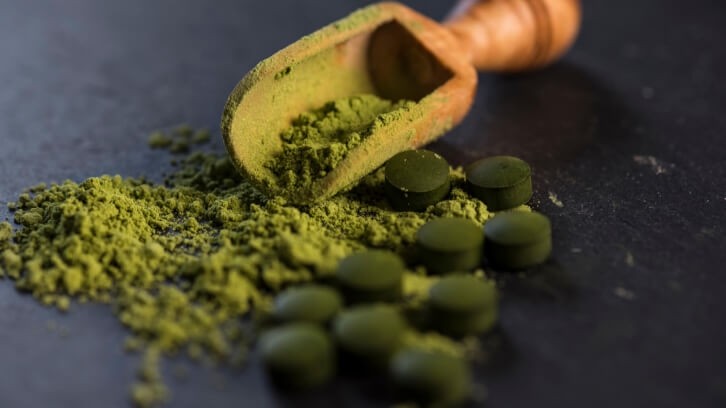Chlorella may improve exercise tolerance and recovery: Study

However, the study observed no improvements to maximal oxygen consumption (VO2 max) or maximal work rate (WRmax) following supplementation.
“To the best of our knowledge, this is the first study to investigate the influence of chlorella supplementation following a short two-day supplementation period on submaximal and maximal cycling intensities,” the University College London researchers wrote in the journal Nutrients.
“The novel findings of this study indicate that two days of 6 g/day chlorella supplementation significantly reduces the blood lactate response and increases O2 pulse during a 20 min submaximal cycle and VO2 max,” they concluded.
Algae and exercise
There is a significant interest in the identification of supplements able to reduce fatigue at lower exercise intensities and preserve energy levels at high intensities during activities such as cycling.
Algae consumption is increasing in popularity due to its performance-enhancing potential, with consumption of types such as spirulina also rapidly increasing. Chlorella vulgaris (Chlorella) has demonstrated significant health and performance benefits in previous research due to its antioxidant, vasodilatory and anti-inflammatory properties due to its potent carotenoid and B-vitamin content.
Previous research has demonstrated that chlorella supplementation reduced blood pressure in both animal and human studies potentially through vasodilation mechanisms resulting from the arginine and antioxidant contents. Further studies found that this effect benefited high intensity athletic performance.
Yet, there is a lack of research investigating the effect of chlorella supplementation on submaximal exercise intensities with a shorter loading period. Thus, the researchers aimed to determine the effects of 6 g/day chlorella supplementation for two days on submaximal and maximal exercise performance in young healthy adults.
Study details
The randomised, double-blinded, crossover trial recruited a test group of 20 adults that included 16 males and four females with a mean age of 22 years. Participants had an average VO2 max of 42.7.
Participants were randomised to self-administer 12 tablets (6 g) per day of either the placebo or chlorella supplement (provided by Indigo Herbs Limited, Glastonbury UK) for two days. Exercise testing then involved a 20-minute submaximal cycle at 40% of their work rate max (watts), followed by an incremental VO2 max test.
Lactate (mmol/L), heart rate (b/min), oxygen consumption (mL/(kg·min)), O2 pulse (mL/beat), respiratory exchange ratio (RER), and work rate max measurements were obtained and compared across conditions.
It was observed that average blood lactate levels were significantly lower during submaximal exercise (3.05 vs. 2.67 mmol/L) and following VO2 max tests (12.79 vs. 11.56) following chlorella supplementation.
In addition, mean O2 pulse was significantly increased following chlorella supplementation during both submaximal (12.6 vs. 13.1 mL/beat) and maximal exercise (16.7 vs. 17.2 mL/beat). However, no performance benefits during VO2 max and WRmax were reported in the participants.
Delayed fatigue and enhanced performance
Regarding the significance of the findings, the researchers explained that lower lactate levels during submaximal exercise are indicative of a higher tolerance to exercise due to decreased homeostatic disturbance, which therefore may delay the onset of fatigue.
"The practical relevance of a small decline in blood lactate levels during exercise is pivotal for both improved exercise performance and enhanced recovery," they added.
Furthermore, the report hypothesized that the additional higher O2 pulse levels would theoretically enable the extraction of more oxygen from the blood into skeletal muscles for the oxidative phosphorylation pathway.
The researchers called for further research to investigate the underlying mechanisms of action and replicate the study within an athlete population to examine the potential of chlorella for performance.
Source: Nutrients
doi: doi.org/10.3390/nu16050697
“Chlorella Supplementation Reduces Blood Lactate Concentration and Increases O2 Pulse during Submaximal and Maximal Cycling in Young Healthy Adults”
Authors: Harry White and Tom Gurney












